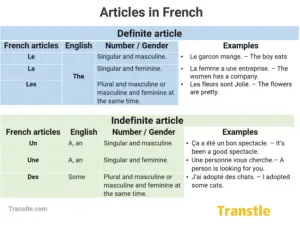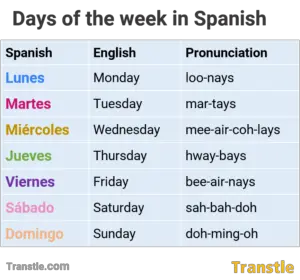French Greetings, Farewells & More: Full List, Examples, Exercises
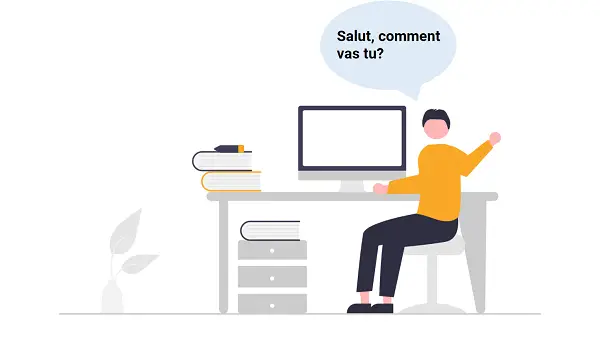
Greetings in French
Greetings, farewells, and introductions in French are words that are used to greet, say goodbye, introduce oneself or thers, inquire about someone’s well-being, etc. They are used to denote the presence, arrival, or departure of a person, among other things, and they demonstrate courtesy, respect, and politeness towards others.
Some of these expressions in French are more common than others, and the level of formality also varies, with some being more formal than the rest.
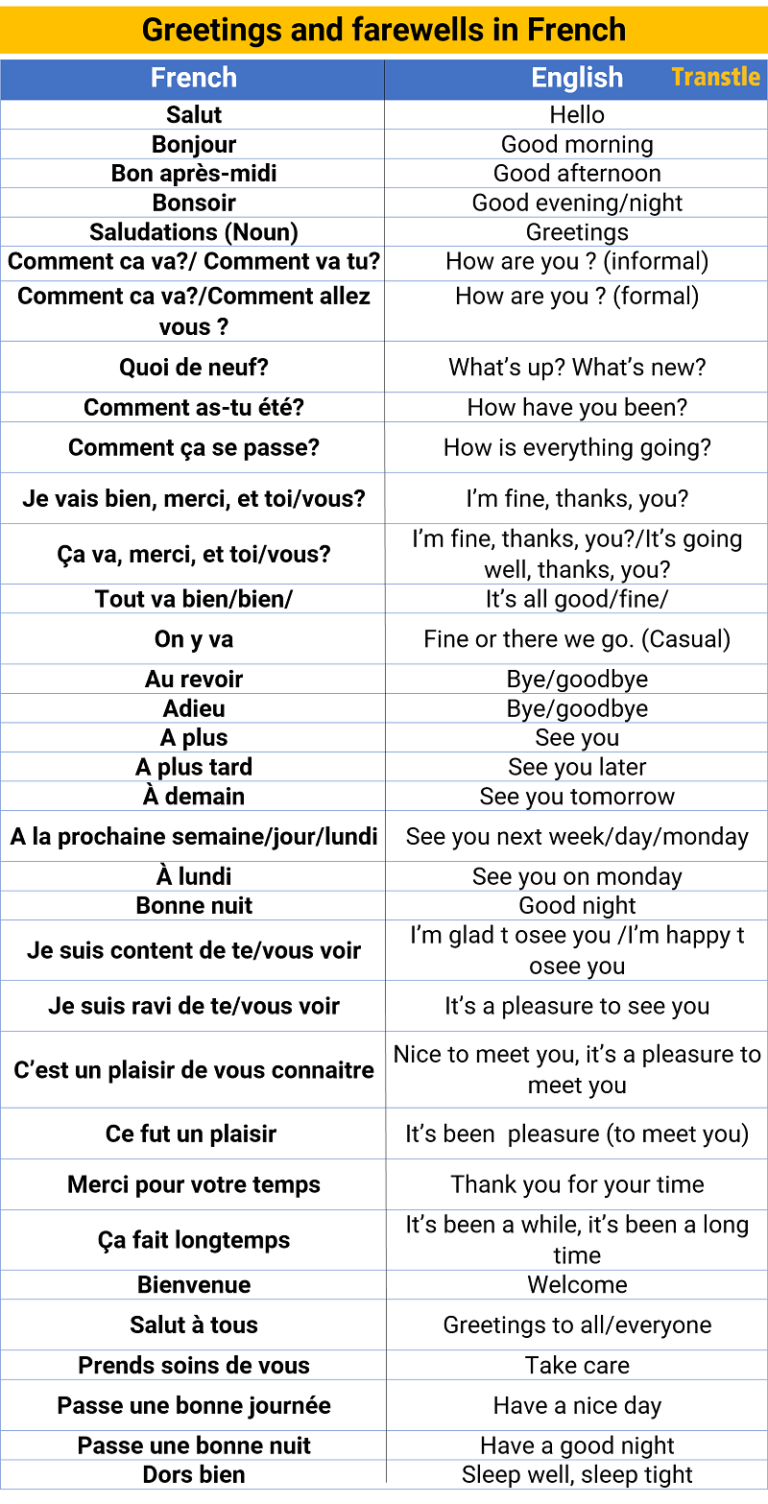
How to say Hello in French
| French | English |
| Salut | Hello |
| Bonjour | Good morning |
| Bon après-midi | Good afternoon |
| Bonsoir | Good evening/night |
| Saludations (Noun) | Greetings |
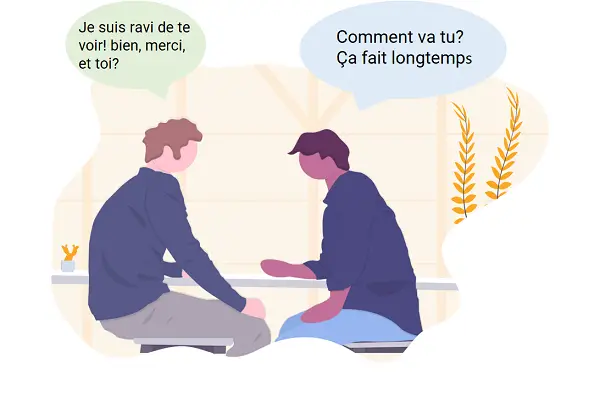
How are you
How to say this expression depends on the person you’re addressing, use “tu” for people you have a casual relationship with, such as friends, relatives, or those younger than you.
On the other hand, use “vous” for people you have a formal relationship with, like bosses, acquaintances, or those significantly older than you.
Formal
| Subject pronoun | French | English |
| Tu | Comment ca va? | How are you? |
| Comment va tu? | ||
| Vous | Comment ca va? | |
| Comment allez vous? |
Learn more about the differences between Tú and Usted
Informal
| French | English |
| Quoi de neuf? | What’s up? What’s new? |
| Comment as-tu été? | How have you been? |
| Comment ça se passe? | How is everything going? |
Fine, thanks
| French | English |
| Je vais bien, merci, et toi/vous? | I’m fine, thanks, you? |
| Ça va, merci, et toi/vous? | I’m fine, thanks, you?/It’s going well, thanks, you? |
| Tout va bien/bien/ | It’s all good/fine/ |
| On y va | Fine or there we go. (Casual) |
Farewells
| French | English |
| Au revoir | Bye/goodbye |
| Adieu | Bye/goodbye |
| A plus | See you |
| A plus tard | See you later |
| À demain | See you tomorrow |
| A la prochaine semaine/jour/lundi | See you next week/day/monday |
| À lundi | See you on monday |
| Bonne nuit | Good night |
Greetings include the days of the week, it is recommended that you learn them too.
Other common expressions
| French | English |
| Je suis content de te/vous voir | I’m glad t osee you /I’m happy t osee you |
| Je suis ravi de te/vous voir | It’s a pleasure to see you |
| C’est un plaisir de vous connaitre | Nice to meet you, it’s a pleasure to meet you |
| Ce fut un plaisir | It’s been pleasure (to meet you) |
| Merci pour votre temps | Thank you for your time |
| Ça fait longtemps | It’s been a while, it’s been a long time |
| Bienvenue | Welcome |
| Salut à tous | Greetings to all/everyone |
| Prends soins de vous | Take care |
| Passe une bonne journée | Have a nice day |
| Passe une bonne nuit | Have a good night |
| Dors bien | Sleep well, sleep tight |
Dialogue with greetings and farewells
Next, you will find two conversation that includes the expressions learned with this lesson.
Dialogue 1.
- Mathew:Mathew: Bonjour Camille!
- Camille: Salut Mathew!
- Mathew: Comment ça va ?
- Camille: ça va bien, et toi ?
- Mathew: Je vais bien, merci, ca fait longtemps!
- Camille: Oui, c’est vrais, quoi de neuf?
- Mathew: Je vis ici a Paris maintenant.
- Camille: Bonne Nouvelle! Oh, Mathew, je te presente mon fiancé.
- Mathew: Salut, enchanté.
- Nicolas: Salut Mathew, je m’appelle Nicolas.
- Mathew: Tu es espagnol?
- Nicolas: Oui, je viens de la Espagne, c’est mon première fois en France.
- Mathew: Bienvenue alors!
- Camille: Il adore la France.
- Mathew: Oui, c’est un beau pays.
- Camille: Quelle heure est il? Je crois que nous devons partir.
- Mathew: D’accord, ça fait plaisir de te voir Camille, J’espère vous rencontrer une autre fois.
- Camille: Oui, moi aussi.
- Nicolas: On peut aller diner ce samedi
- Mathew: Oui, ca serait fantastique!
- Camille: Parfait! je t’appellerai demain alor, a Samedi.
- Mathew: A plus, bonne nuit.
- Nicolas: Bonne nuit, prends soins de vous.
Dialogue 2.
Person 1: Je vais bien, merci. Est-ce que vous avez besoin d’aide ? (I’m doing well, thank you. Do you need any help?)
Person 2: Non, merci beaucoup. Au revoir ! (No, thank you very much. Goodbye!)
Person 1: Au revoir ! À bientôt ! (Goodbye! See you soon!)
In this conversation, Person 1 uses the formal greeting “Bonjour” and the formal pronoun “vous” to address Person 2, who responds using the same level of formality. Person 1 also uses the formal expression “Est-ce que vous avez besoin d’aide ?” (Do you need any help?) to offer assistance. Person 2 uses the formal expression “Non, merci beaucoup” (No, thank you very much) to decline the offer and says “Au revoir” (Goodbye) using the formal expression. Finally, Person 1 says “À bientôt” (See you soon) using a more informal farewell expression.
Excercises
Translate the following sentences into French:
- Hello how are you?
- Good morning, my name is Juan.
- Hello! How is everything? Glad to see you again.
- Goodbye, it was nice meeting you. See you soon.
- Have a good afternoon, see you tomorrow at the meeting.
- Good night, see you Monday.
Answer:
- Hello, comment ça va?
- Bonjour, je m’appelle Juan.
- Hello! Comment ça va? Je suis content de te revoir.
- Au revoir, ce fut un plaisir. À bientôt.
- Bonne nuit, on se voit demain à la réunion. Bonne nuit, à lundi.
Read next

